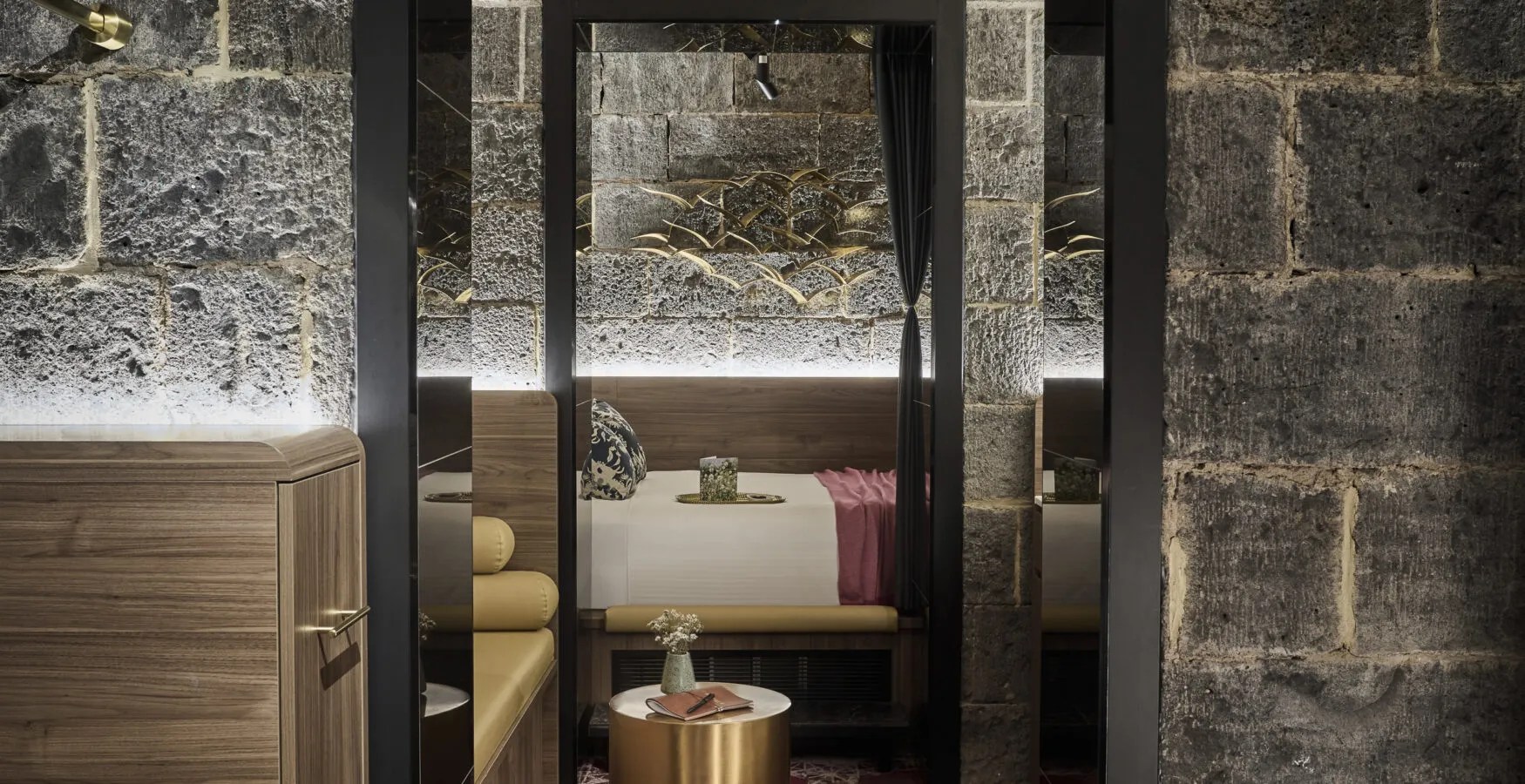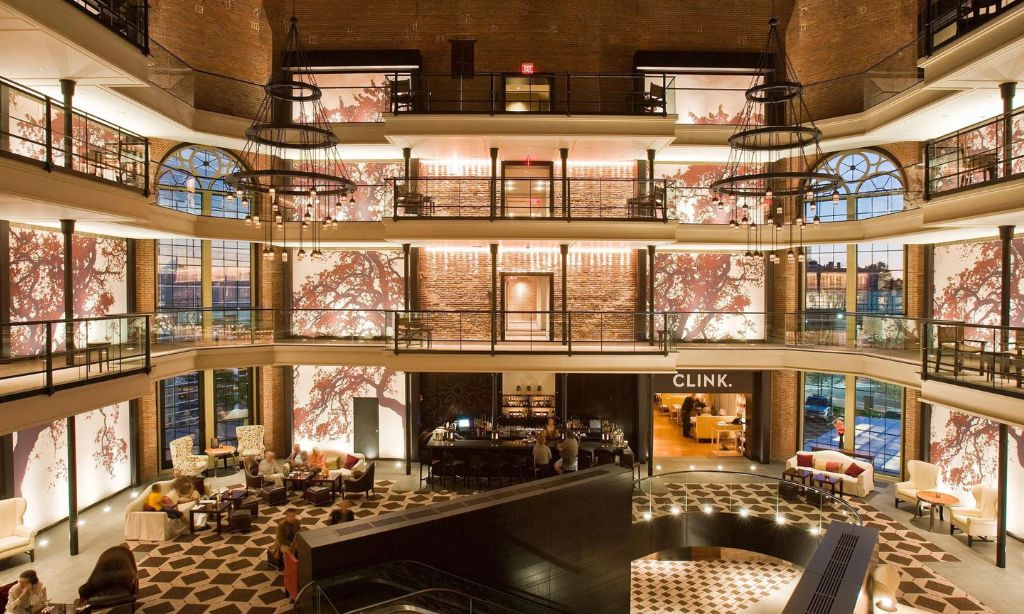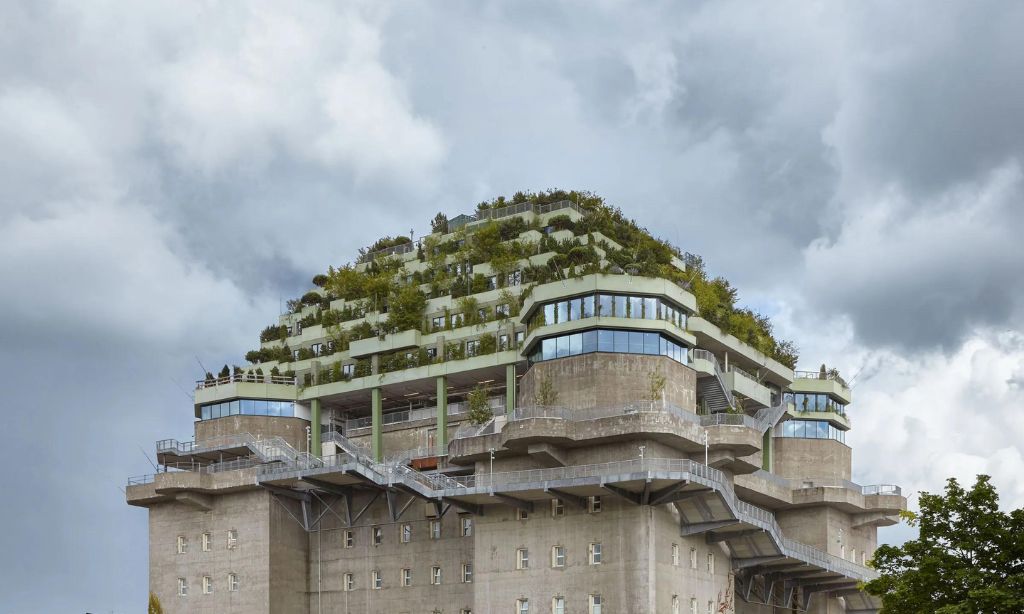Last year, arguably one of the most unique Australian hotel openings was The Interlude, a boutique property taking over a 170-year-operating former prison. It’s part of a growing number of accommodations in buildings with dark pasts.
The Liberty Hotel in Boston, Four Seasons Sultanahmet in Istanbul and Old Mount Gambier Gaol in South Australia are housed in former prisons or jails. Reverb by Hard Rock Hamburg in Germany which opened July this year, is in a former Nazi bunker.
Why are more of these stays opening? And how ethical are they?
The Appeal of Dark Tourism
The appeal of these hotels is closely tied to a broader travel trend known as dark tourism. “Dark tourism refers to visiting places where some of the darkest events of human history have unfolded,” wrote Washington Post in 2019. Dark tourism has long been a phenomenon and the practice is human nature, experts told the publication. We have always had a cultural fascination with dark history.

“I think when we go to these places, we see not strangers but often […] ourselves and perhaps what we might do in those circumstances,” Philip Stone, executive director of the Institute for Dark Tourism Research at Central Lancashire Uni told the publication.
Mel Stephenson, owner of Old Mount Gambier Goal, puts it this way: “People get to experience staying in a prison with the knowledge they can leave whenever they wish.”
In these establishments, guests can immerse themselves in history, rather than just read about it — as horrific as that history is. Reverb by Hard Rock Hamburg was built using forced labour during Adolf Hitler’s Nazi regime, reports CNN Travel. “It’s a relic of the darkest in Germany’s history […],” the publication writes.
Pentridge Prison once housed some of Australia’s worst criminals including Ned Kelly, Harry Power and Mark ‘Chopper’ Read. It was the longest-running prison in Melbourne and the largest prison complex in Victoria in the 19th century. In 2023, it was transformed into a billion-dollar lifestyle precinct including a bar, cinema and two ones, one of them The Interlude.
“We are proud that areas of historical significance remain protected,” says The Interlude’s general manager Christian Price. “Through a partnership with The National Trust, these heritage elements serve as invitations for visitors to learn about pasts that are confronting to discover yet crucial not to forget.”
Valeria Sigarrostegui, PR and nightlife manager of Liberty Hotel, thinks many guests book for the chance to stay in a landmark that has witnessed important historical events. “The building’s rich past as a former prison adds a layer of intrigue and connection to Boston’s history,” she says. “There’s a unique story behind every corner and detail.”
Challenges in Their Build
Reusing existing buildings for hotels is also more sustainable because builders aren’t wasting resources tearing down the structure and constructing a new one. They might also be more economically attractive to developers. In many cases the buildings are structurally sound and may only require renovating. Though Price says restoring and building from scratch does bring challenges.

“With no blueprints to work off [for The Interlude], converting the landmark gothic revival building was no mean feat,” he says. “Behind every well, in every roof space and under the floors, surprises waited for the architects and builders. The team needed to reverse engineer many aspects of the project.”
At The Liberty Hotel in Boston, a restoration team worked diligently to retain original architectural elements like the stone façade and ironwork. The conversion involved careful planning to integrate modern amenities while respecting the building’s history.
Before becoming an accommodation, Gambier Gaol only had the walls from its original structure. The team still had to follow heritage regulations. Local history groups and the council have helped them collate information about the goal they can share with guests.
“Initially we had to work hard to entice guests to stay with us,” Stephenson says. “Now that dark tourism is thriving, it is much more popular for guests to seek an experience like this.”
Is a Stay at a Former Jail Ethical?
So is converting such spaces into accommodations, particularly when they’re luxury offerings, ethical? The answer is nuanced. Some say transforming buildings associated with suffering and human rights abuses into places of comfort and leisure is disrespectful to and exploits the victims and their families. It trivialises their suffering. This camp also argues that these spaces should be preserved as memorials or educational sites to honour the past and prevent similar atrocities from happening again.
Ultimately the answer to the stays being ethical depends on a few factors. They include the specific context of each building, measures taken to respect its history and overall impact on the community. Each stay requires careful consideration and a balance between honouring the past and creating meaningful visitor experiences. One thing is for sure: these sites play an important role in society.
“These are important sites that tell us a lot about what it is to be human,” tourism professor at Glasgow Caledonian University, J. John Lennon, told WP. “I think they’re important places for us to reflect on and try to better understand the evil that we’re capable of.”
Related: How Travel Alters Your Brain Chemistry
Related: You’re Right — Everyone’s Swapped Winter for Euro Summer
Read more stories from The Latch and subscribe to our email newsletter.







